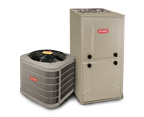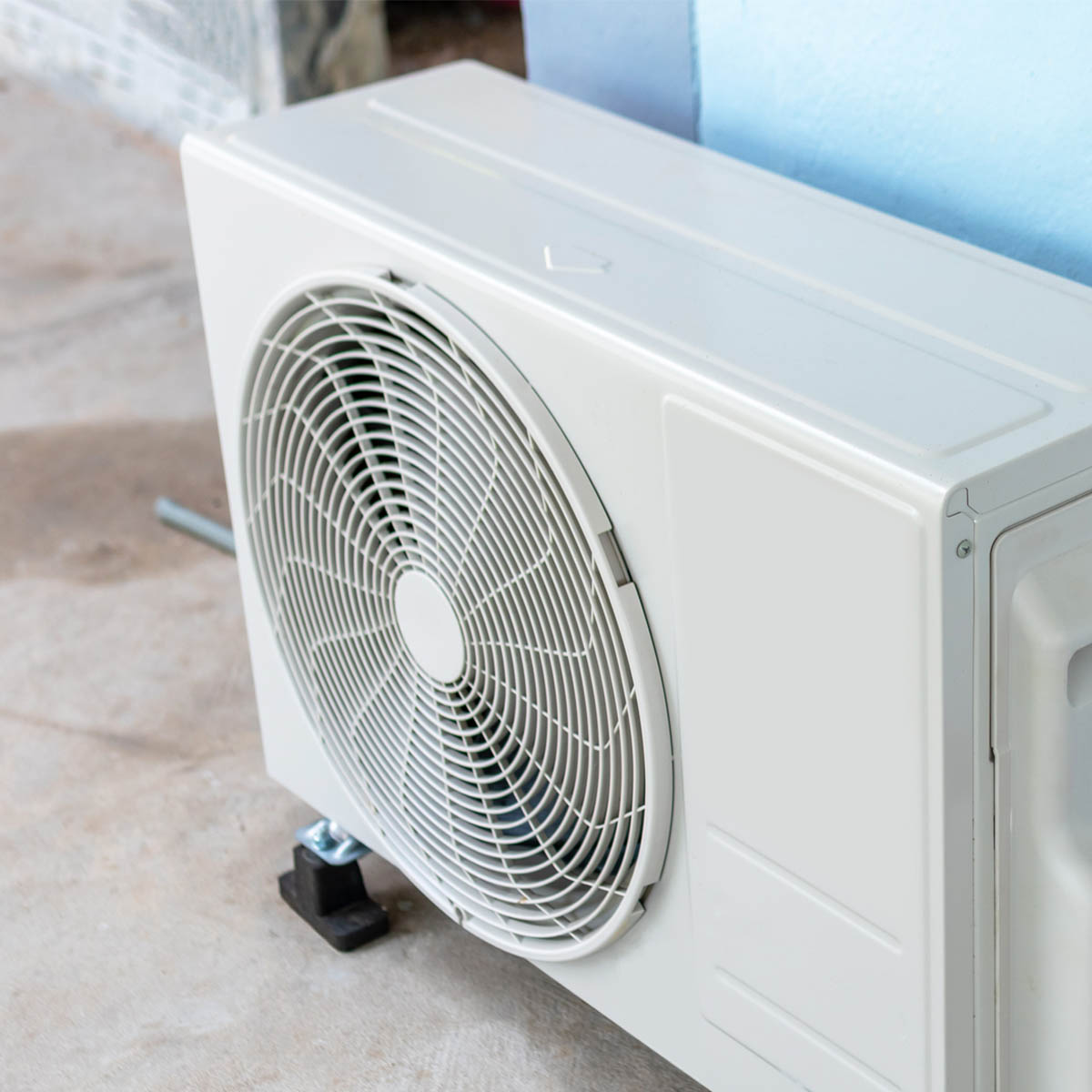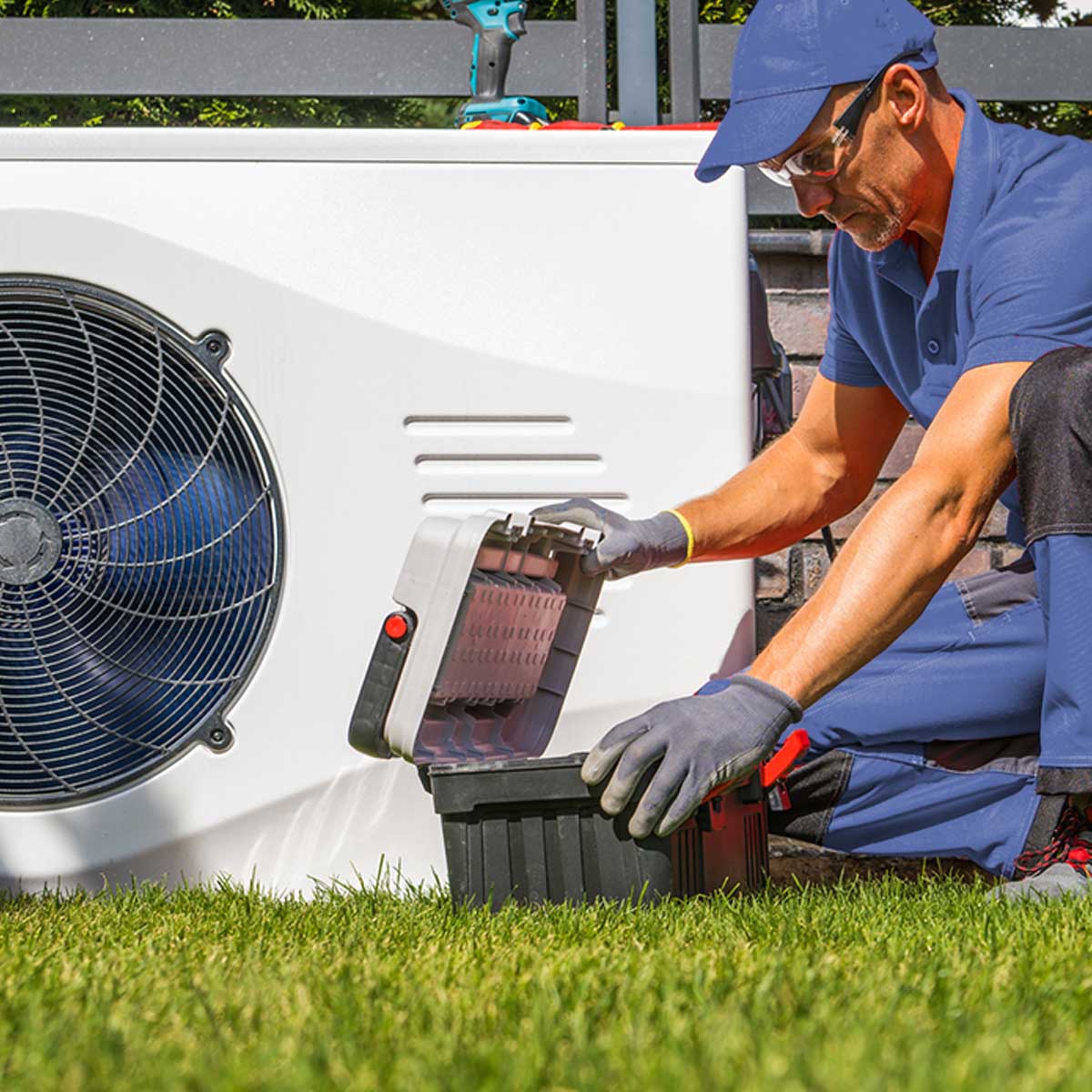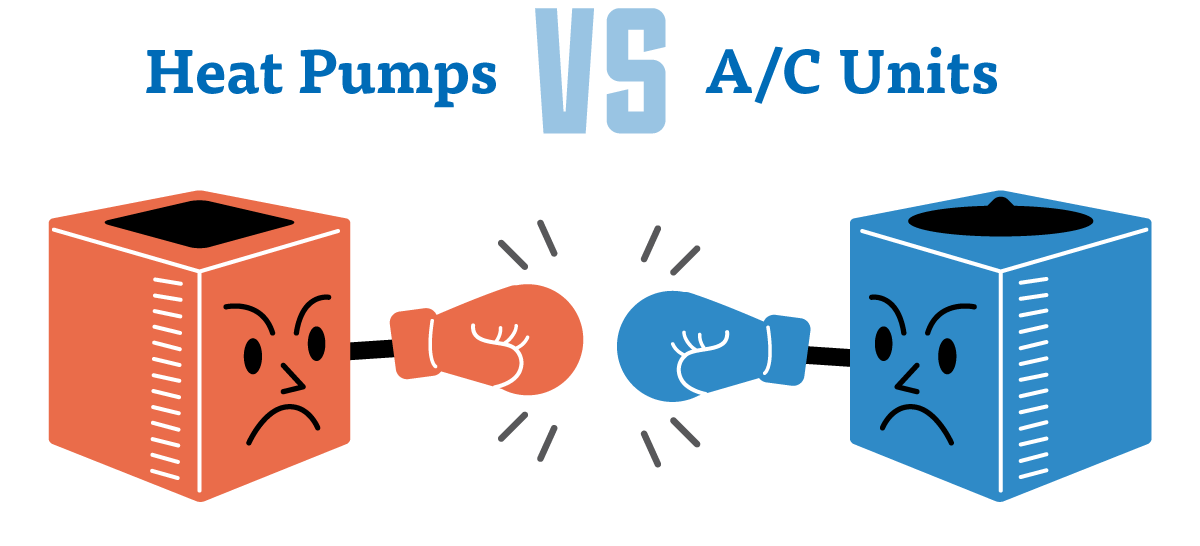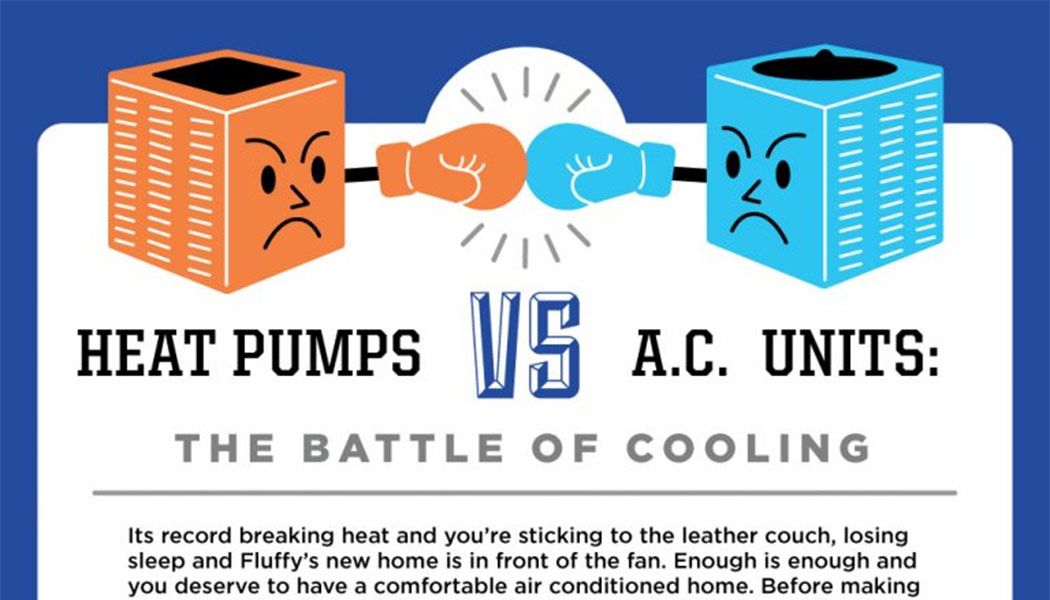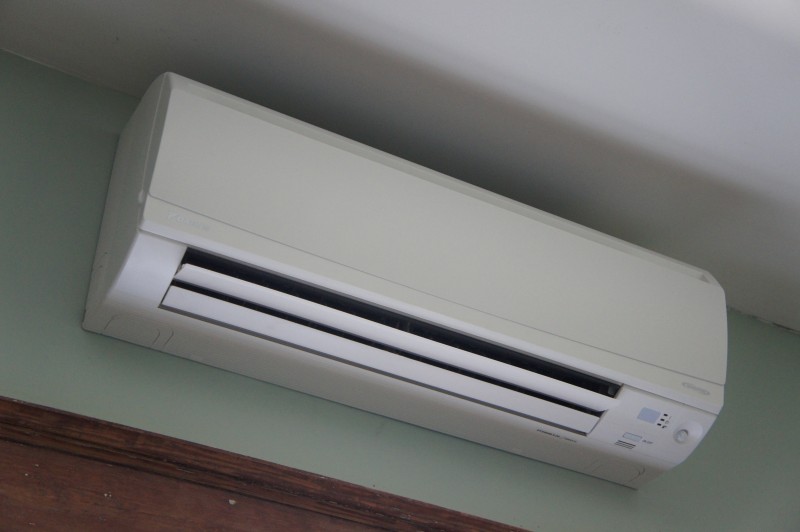
Pros and Cons of Heat Pumps
What is a heat pump?
A heat pump is a central air HVAC system designed to cool a space when in cooling mode and heat a space through “reverse cycle” in heating mode. As the name suggests, it “pumps” or moves air around rather than generating air. So why do homeowners love heat pumps?
There are two main reasons:
First, heat pumps are the complete package. In a single unit, you have the ability to heat your home during the colder seasons and cool your home during the warmer seasons. We’ll explain how heat pumps work later.
Second, heat pump systems are highly energy efficient by design. In most situations, a heat pump uses less energy than the amount of heat they deliver to your home, which makes them more efficient than most HVAC systems.
Let’s take a closer look at a heat pump’s pros and cons.
Pros of a heat pump
High energy efficiency
Using a heat pump instead of burning natural gas has been known to cut down on utility bills and save energy. Although heat pumps rely on electricity to work, their heating mechanism is what makes them so efficient. Pumping the heat (moving air around) uses less electricity compared to electric heaters, which generate heat by using a heating coil to convert the air.
Because electric heat pumps use only electricity, it reduces the need to have access to natural gas or keep a propane tank. They also do a great job of evenly distributing warmth or cool air throughout the entire home, so there are no hot or cold spots and everyone is comfortable all year round.
Lower energy bills
Homes that function primarily on electricity have enjoyed lower utility bills with a heat pump for decades. Since they use less electricity, heat pumps are generally cheaper to run and twice more efficient than electric furnaces and, in some situations, gas furnaces.
Year-round heating and cooling
If you’re looking for one system to handle all of your heating and cooling needs, heat pumps are the clear winner. A heat pump is essentially two systems in one: an air conditioner in the summer and a furnace in the winter. As we mentioned earlier, during the cold, heat pumps will extract warmth from the air outside and evenly distribute it into your home.
If it’s cold outside, how would that work? That’s the kicker. Even when the temperature is 33° F, there is actually still heat in the air that is usable. But, as you might have guessed, the potential issue comes when the temperature goes below a certain level. More on that later.
During the summer, a heat pump functions just like an air conditioner, albeit more efficiently. Both HVAC systems move heat and moisture out of your living areas and pump it back outside.
When deciding between an AC unit and a heat pump, they’re pretty evenly matched as far as cooling goes. Other factors such as price, maintenance, location, climate, and lifespan will ultimately help you choose the right system for your needs.
Qualify for tax rebates
Our local Washington utilities offer rebates for heat pumps because of the real energy savings they provide.
Environmentally-friendly
The heat pump is also one of the ‘greenest’ ways to heat and cool your home because it is powered by renewable electricity. This all-in-one feature provides an economical source of heat (the air, it’s free!) and uses much less energy in the process.
Heat pump systems don’t use flammable gasses, so there is no risk of gas forest fires or leaking carbon monoxide.
Combining heat pumps with solar panels can also make your home self-sufficient and eco-friendly.
Better air quality
Heat pumps are better dehumidifiers than normal air conditioners because these systems typically have a larger coil that conditions and dehumidifies more air than an air conditioning system.
All of these pros make heat pumps seem like a real catch! And for many homeowners, they are. However, there are some disadvantages to heat pumps.
Cons of a heat pump
Less effective in colder climates
Heat pumps tend to be somewhat ineffective in any climate where the outdoor air temperature drops near or below freezing on a regular basis.
As soon as the outside temperature falls below 25-30° F, a heat pump becomes a sitting duck vulnerable to the fancies of the surrounding cold weather. This is because moving warm air from a very cold area to a hotter one takes more energy than moving heat between two areas with a more moderate temperature difference. And it’s why heat pumps are better suited for areas with moderate climates (yes, like the PNW).
It’s important to note that even in a cold climate, there’s still heat in the outside air to be pumped indoors, but the unit needs to work harder to extract the available heat. Backup energy, such as a furnace, may be required to make the heat pump produce enough warmth to comfortably heat your home when the temperature falls below freezing.
While low efficiency in colder climates has been the case for heat pumps in the past, it might soon be ancient history. Today, modern multi-stage heat pumps are available with the ability to withstand lower temperatures down to 0° F.
Susceptible to power outages
Because heat pumps rely solely on electricity, if your location experiences a power outage, your heat pump will also go down. A common solution is having a generator ready to go.
Less intense heat
The heat produced by heat pumps isn’t as intense as the heat produced by a gas or oil-burning furnace. Some people used to traditional furnaces are uncomfortable with the milder heat produced by these systems.
Other people prefer the warmth produced by heat pumps because they distribute heat evenly throughout the house which means no cold spots.
Higher upfront costs
Heat pump installation base prices can be more expensive upfront with an average cost between $3,874 to $10,000. However, it’s less costly when compared to installing home heating and cooling products separately.
For instance, getting a gas or electric furnace and an air conditioning system will be much more costly than most types of heat pumps.
Is a heat pump worth it in Washington?
What it boils down to is what available resources, climate and utilities your home has in your specific location. For instance, if your home primarily uses electricity and doesn’t have any natural gas, a heat pump will double the efficiency of an electric furnace. This will mean you save money, have less maintenance and lower operating costs. However, suppose you live in a climate that experiences below-freezing temperatures regularly. In that case, a gas or electric furnace may suit you better.
Trying to decide between an AC unit and a heat pump? Read the next blog: AC vs Heat Pump: The Cooling Battle!
Related products
Suggested Reading
- 2016
- AC
- AC Installation
- AC Units
- AFUE
- air conditioing
- air conditioner
- air conditioning
- air conditioning maintenance
- air conditioning service
- air conditioning tune-up
- air duct
- air duct cleaning
- air handlers
- air pollution
- Air Purification System
- air purifier
- Air Sealing
- angie's list
- award
- basement Finishing
- Bathroom remodel
- BBB
- BBB Accredited Business
- before and after
- Best air conditioner
- best filters
- best generator
- best locks
- best water heater
- best window install
- boilers
- bryant
- Bryant AC
- bryant furnace
- bryant heat pump
- christmas lights
- clean air
- clothes drive
- Clothes For Kids
- coat drive
- combi-boiler
- comfort
- community
- Construction
- contractor
- contractors
- Cooling
- Cooling equipment
- Coronavirus Protection
- custom
- daikin
- deals
- discounts
- DIY
- Donation
- Donations
- door hardware
- door installation
- door replacement
- Door Transformations
- doors
- drafty home
- drain cleaning
- Duct Cleaning
- Duct Cleaning Services
- ductless
- Ductless heat pump
- ductless heat pump. mini-split
- Ductless heat pumps
- ductless heating system
- ductless heating systems
- ductless installation
- Ducts
- earth day
- eco friendly
- EER
- election
- electrical inspection
- emergency
- energy
- energy conservation
- energy efficiency
- energy efficiency rebates
- energy efficient AC
- energy efficient air conditioner
- energy efficient home
- energy efficient hvac
- energy efficient HVAC Systems
- energy efficient windows
- energy myths
- energy saving
- energy saving home products
- energy star
- energy tax credit
- environmentally friendly
- exterior doors
- fall
- fall weather
- fiber cement
- fiberglass doors
- filter
- filter change
- financing options
- fireplace
- fireplace insert
- fireplace repair
- fireplace tune-up
- front door
- furnace
- furnace filters
- furnace install
- furnace maintenance
- furnace mileage
- furnace problems
- furnace replacement
- furnace service
- furnaces
- Garage door replacement
- gas fireplace
- gas fireplace inserts
- Gas Fireplace Makeover
- gas furnace
- generators
- going green
- good business practices
- green solutions
- Guardian Maintenance Club
- heat
- heat pump
- heat pump installation
- heat pump maintenance
- heat pump vs ac
- Heat Pumps
- heat pumps maintenance
- heat wave
- Heating
- Heating and Cooling equipment
- heating and cooling systems
- Heating Brands
- Heating Control
- Heating equipment
- Heating System Tuneup
- heatwave
- HEPA filter
- history
- holiday
- home
- home buyer
- home energy
- home energy efficiency
- Home energy efficiency solutions
- home exterior
- home heating
- home improvement
- Home Improvement Rebates
- home improvement repair
- home inspection
- home maintenance
- home maintenance checklist
- home maintence
- home performance
- home protection
- home repair
- home safety
- home upgrade trends
- home upgrades
- home value
- homeowners
- honeywell
- hot water
- hot water heater
- houzz
- how to
- HVAC
- HVAC Contractor
- HVAC Contractors
- hvac system
- IAQ
- indoor air quality
- infographic
- install
- install furnace
- insulation
- intellihot
- interior doors
- kids
- Kitchen face lift
- LED light
- LED lights
- light bulb
- light bulbs
- locks
- mailbag
- maintenance
- march
- membership
- mini-split
- modulating furnace
- money saving
- money savings
- navien
- new door installation
- new home
- New homeowner
- new windows
- news
- pacific northwest weather
- patio doors
- pets
- plumbing
- plumbing inspection
- power
- power outages
- precision tune up
- preventative
- Pro Tips
- Programmable Thermostat
- Programmable Thermostats
- propane
- PSE Award
- PSE Energy
- PUD
- Q & A
- Ratings
- rebates
- refund
- REME Halo
- Remodel
- remodeling hacks
- Replacing Heating System
- reputation
- Safe Home Insulation
- sale
- save energy
- Saving money
- scam
- scams
- seattle
- Seattle Weather
- SEER
- service
- services
- Siding
- Siding replacement
- sliding glass doors
- Smart Home
- Smart thermostat
- smoke
- Solar Attic Fan
- solar power
- Solar Powered Light Strand
- sound
- spring
- standby generators
- storm doors
- summer
- summer fires
- Summer heat
- Summer home
- super service 2016
- tank water heater
- Tank water heaters
- tankless tune ups
- tankless water heater
- tankless water heaters
- tax rebate
- thanksgiving
- Thermostat
- tips
- trends
- tune-up
- upgrade
- upgrade cooling
- upgrade heating
- utilities
- utility rebates
- veterans
- Washington Energy
- washington energy services
- water conservation
- Water Heater
- water heater installation
- water heater maintenance
- water heater repair
- water heaters
- water leak protection
- Wildfire Season
- wildfire smoke
- window
- window energy efficiency
- window install
- window maintence
- window remodel
- window repair
- window replacement
- windows
- winner
- winter
- zone heating
- Air Conditioning
- Air Purifiers
- Cooling
- Doors
- Ductless heat pump
- Environmental
- Fireplace
- Furnace
- Gas fireplace
- Generators
- Heat pump
- Heating
- Home improvement
- How to
- HVAC
- Indoor Air Quality
- Insulation
- News
- Plumbing
- Rebates
- Seattle
- Service near you
- Siding
- Smart Home
- Tank water heaters
- Tankless water heaters
- Tips to save money
- Uncategorized
- Wildfire Season
- Windows
